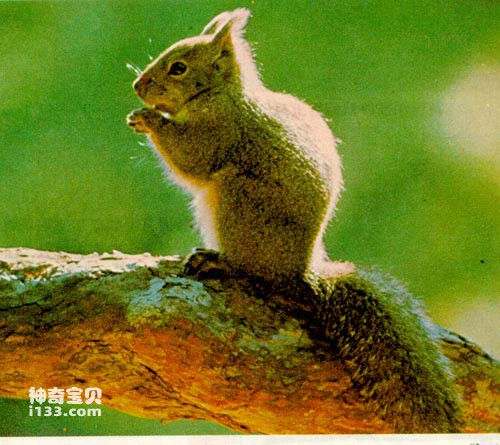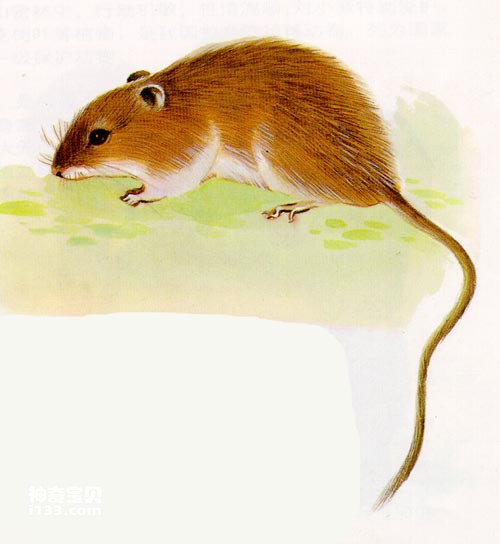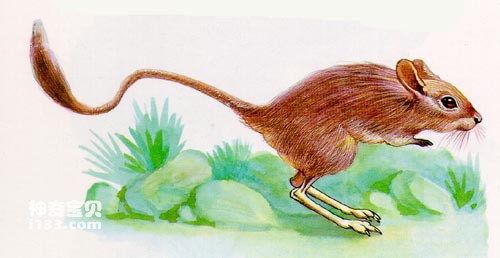When talking about rats or mice, people always think of their bad habits such as stealing food, destroying crops, and even spreading diseases. The idiom "when a rat crosses the street, everyone shouts to beat it" fully expresses human beings' deep hatred for rats.
However, not all rodents are harmful. Some rodents are economically valuable animals. For example, the fur of squirrels can be made into leather products. If you go to a university's medical school, school of biology or some research institutes, you will find countless mice serving as experimental animals. It can be said that every new development of modern humans in conquering diseases and conducting biological experiments Many new breakthroughs in research are due to the contributions of these experimental mice. Therefore, we should say in good conscience that mice are great.

squirrel
In fact, mice and the rodents they belong to are even more great from the perspective of vitality and evolution. If the number of species and the scope of adaptive radiation are used as the criteria for evolutionary success, then from the perspective of animal evolution, rodents evolved compared with other types of animals during the Cenozoic Era, tens of millions of years ago. In other words, they are far superior to all other mammals and are a very successful group of mammals in evolution.

Rattus norvegicus
Modern rodents are the most diverse mammals, with more than 2,500 species, accounting for one-third of all mammal species. In terms of their genera and species, there are more genera and species than other mammals of all orders combined. The combined weight of all rodents in the world is much greater than the total weight of whales. Paleontologists speculate that this was the case throughout most of the Cenozoic Era.

jerboa
So why are animals like rats and mice so evolutionarily successful? There are many reasons. First of all, most of these animals have maintained small bodies throughout their evolutionary history, which allows them to develop into huge populations and makes it easy for them to open up environments that larger animals cannot adapt to. We know that the environment that rodents can adapt to is too broad. From the hot equatorial regions to the ice and snow at the poles, rodents exist in every possible environment on the earth's land. In addition to house mice and rats that often appear in and around human homes, we are familiar with squirrels that live in trees; jerboas live in underground burrows, rock squirrels nest in rock crevices, and bog meerkats inhabit in swamps, while meridian gerbils are active in deserts. There is even a kind of scalding rat in the Vicula hot spring in Greece. It has adapted to such a special environment because it lives in the hot spring water with a high temperature of more than 90 degrees all year round. Even if it is placed in boiling water, it can lively float and dive. Traveling east and west, I am not afraid of getting burned at all. Such a wide range of adaptability has allowed rodents to gain a firm foothold in the tens of millions of years of mammalian evolution.
Another important reason for the success of these small animals is that they mature sexually very early. Some species can have children before their bodies are fully developed. Therefore, rodents are particularly fertile and reproduce extremely quickly, which means they can quickly occupy new territories and easily adapt to changed ecological and environmental conditions. For example, guinea pigs can live up to 3 years, have a gestation period of only 63 to 68 days, and usually give birth to 2 to 3 pups per litter, and can give birth to up to 8 to 10 pups. Pups are ready to eat 3 days after birth, weaned at 2 weeks, and reach sexual maturity and fertilization in about 3 weeks. Rodents have such a strong reproductive capacity that they often win with an absolute advantage in individual numbers in competition with other mammals.
The above-mentioned factors allow animals such as rats and mice to flourish in the earth's ecosystem for a long time, allowing them to continue to live tenaciously in places where other mammals have failed. Therefore, it is no exaggeration to say that rodents are extremely successful in animal evolution, and in many ways they represent the pinnacle of mammalian success.
animal tags: rat rattus norvegicus squirrel jerboa
We created this article in conjunction with AI technology, then made sure it was fact-checked and edited by a Animals Top editor.